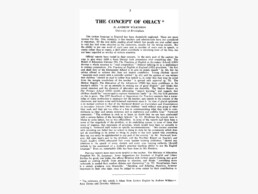Oracy Is Not Just Speaking and Listening
I visit schools who are doing ‘oracy’ and I see speaking and listening! Mind you – I am so pleased to see children conversing and teachers asking a wealth of interesting questions – but it ain’t oracy. Speaking and listening is valuable; oracy is valuable – they overlap and have elements in common – but they are different. It remains confusing because, inevitably, you see and hear one in the other and vice versa and often the boundaries are very blurred.
So, what IS oracy and how do I know what it isn’t when so many great teachers and leaders think they are ‘doing’ it? Well, to be fair it has taken me over two years and a lot of hard work to come up with an answer that may solve that mystery.
You see, Andrew Wilkinson did not know the answer himself when he came up with the terminology in 1965. How can you create a new ‘something’ to teach children when you do not yet know what the ‘something’ is? It is important to be able to define your vision before you attempt to communicate it to others. That is why new thinking and new ideas often have slow and shaky starts until the definition is crystal.
Wilkinson’s aspiration was good, however, he wanted to raise the profile of talk and language so that it was NOT just speaking and listening. He created the name ‘oracy’ to put his new aspiration on a par with numeracy and literacy and he developed a massive and much underrated national initiative to promote it, but he still didn’t know what it was and neither did most of the country.
There is so much written about the cruciality of oracy, and I have read much of it, but nowhere do you truly understand what it means. Voice 21 has established itself as an authority, saying;
We believe that schools have the power to change a child’s life and create a fairer society. We support schools to build oracy into learning, the curriculum and wider school life. Oracy is the ability to speak and listen in a range of different contexts – one-to-one, in groups and to a larger audience. Oracy skills set children up for success in school and life.
So what is it? Well, perhaps Voice 21 is close to defining ‘oracy’ when it tells you what you will see and hear in schools they work with:
In Voice 21 schools, you will hear students solving problems collaboratively in maths and dissecting arguments in history, talking through conflicts in the playground and leading assemblies.
So close to a definition – but not! Was Andrew Wilkinson influenced by Sir Evelyn Wrench when the latter said that effective discussion and communication had four components:
- reasoning and evidence;
- organisation and presentation;
- listening and response;
- expression and delivery.
Wrench, a former journalist, had seen his original international communication organisations morph into the promotion of discussion and communication between young people around the world in order that they might better understand each other and show mutual respect by the mid-1960s, before he died.
Wrench (1882 to 1966) saw international co-operation and communication as crucial for world peace and his summary of the four components for his aspirations possibly reflect the aims of Voice 21:
Voice 21 sets out four strands of oracy – Physical, Linguistic, Cognitive and Social and Emotional. The ‘physical’ includes elements such as voice projection, using eye contact and gesture. ‘Linguistic’ involves using appropriate vocabulary and choosing the right language for different occasions; ‘cognitive’ is about organising the content of your speech and ‘social and emotional ’ includes working with others, taking turns and developing confidence in speaking.
Ah, now it is becoming clearer. In identifying the four components of communication promoted through his work, he was embracing the best of speaking and listening – a best that verges on oracy and sometimes becomes it.
Wilkinson’s aspirations for the National Oracy Project (1987 to 1993) were established as a key contribution to the early National Curriculum. However, Wilkinson himself struggled to define the term – eventually coming up with a statement he immediately felt was inadequate for the job. In his own words, Wilkinson said that oracy was;
…the verbalisation of experience.
As he promptly acknowledged his dissatisfaction with this, a colleague suggested that perhaps it was rather;
…the experience of verbalisation…
whereupon Wilkinson seized the diametric and married the two. I read them, I understood them, but I knew not what they meant.
I was extremely fortunate to be invited to participate in the Bradford strand of the National Oracy Project upon my return to the United Kingdom in 1986 after 17 years in the Caribbean. I had no training, no induction or introduction, no materials and attended no meetings but I much enjoyed working with my 13-year-old Middle School pupils on communication skills and we all developed a passion for the huge effectiveness of talk, debate and discussion on our studies. We ‘did’ speaking and listening in the best sense of the word. We talked endlessly about the power of talk and the role inspirational discussion plays in understanding learning, clarifying it, embedding it and moving it forward.
We benefit so hugely from the first three elements of Wrench’s description, but we do not often – in the busy overloaded world of education in England – move through to that final stage…
For the past two years I have studied, reflected on and written about oracy, and finally I feel my understanding reflects Wilkinson’s diametric. I have watched communication and discussion radically improve in the schools participating in our trials, but the key element is still in development. And then – while enjoying a dramatic performance of a verbalisation of the experience of analysing a response to a mythical image – the penny dropped as the missing word fell into place.
It is an oral performance of an experience, performed with passion and dramatic communication. It takes creativity, skill, rehearsal and interpretation… but oh it is so powerful in its illustration and conveyance of the impact of an experience that must have been 100% understood, absorbed and embraced to be verbalised through oracy.
It is exciting to be on the fringes of the birth of the Oracy Commission:
The Commission on the Future of Oracy Education in England is an independent commission, chaired by Geoff Barton and hosted by Voice 21.
I see with interest that their discussions and contributions follow that same pathway that I have been struggling along with so much joy and enlightenment. Now I have words to express what I was fortunate to have been given by an articulate and inquisitive family at the kitchen table in the days before TV and media – an ability used all my career without ever knowing how to define it. This was not a gift of class but rather a gift of culture. We were genuinely impoverished financially but blessed in ability to use language. Now every child in the country and the world may have the great good fortune to acquire those same skills.
Of course I was unable to define oracy, I was still in the understanding and absorbing phase – as so many others are still today. It is everything both Welch and Wilkinson said and everything Voice 21 has said. You can’t achieve oracy without speaking and listening but you can usefully and productively use speaking and listening in education without taking it on that final, massive-for-many climb into oracy.
Now we know it, let’s get our boots on…
Talk:Write
A fun and flexible approach to improving children’s vocabulary, speech, and writing.


